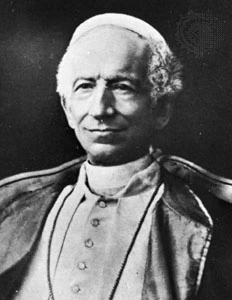Christian “Just War Theory” is Too Christian, Say Critics.
A strange, but rather interesting article from the CNA.
It would appear that there are objection to an US Air Force Ethics Course incorporating the Christian take on war. Living in Europe, I had thought that some nuChurch pacifist had expressed objections to the idea that war be “Christian” in the first place, but the problems seem mainly to pivot around the fact that in some people’s mind, Christian ideas should not be part of a course of Ethics held by the armed forces.
The logic of this fully escapes me. Even as a Christian, I wouldn’t have the least objection in learning, say, what Classical Greece’s prevalent thoughts about just war were. It seems to me that one has a legitimate right, even if he happens not to be a Christian – or a believer, come to that – to have a grounding in historical facts about the way ethics – or religion – and war have interacted.
Not so, say the critics. War must be seen from a perspective that is completely kept separated from any religious thought or tradition about it.
Once again, it seems to me that these kind of people are not worried about the separation of Church and State, but are worried about cancelling Christian thought from every aspect of Western civilisation.
Besides, it is fair to say that Christianity has greatly improved warfare exactly from the ethical point of view, so that an explaining of the Judeo-Christian influence on warfare makes perfect sense even for the most atheist of soldiers.
The course is also criticised for the extensive use of prevalently Old-Testament verses to give an ethical – and here, clearly religious – justification to war. As if the vast majority of soldiers were required to forget that they are Christians when they learn how to be ethical soldiers. How absurd.
Lastly, allow me to say that after decades in which Jesus has relentlessly been described as a Birkenstock-wearing flower child, to know that there are ethical courses describing Him as “the Mighty Warrior” is absolutely refreshing.
The texts are now under review and the basic question is whether a presentation of the Christian perspective of war – as opposed to a pure “rational” explanation of just war based on “rational ground”, which can’t exist unless these grounds are based on Christianity – is allowed.
Let us hope that reason prevails.
Mundabor
Posted on August 7, 2011, in Catholicism and tagged Catholic Church, Catholic Doctrine of war, Catholicism, Conservative Catholic, conservative catholicism. Bookmark the permalink. 2 Comments.





















Did you happen to notice the irony in your post above? The US wants to now obliterate any Christian-based ethical teaching on warfare. And so it has, for decades. There is nothing the United States has done recently that would meet the most basic requirements of Catholic just war theory, particularly its bombing of civilian targets and waging aggressive war against nations which have done us (the Americans) no harm. And that same lack of ethics goes back to the Civil War, the Spanish-American War, the USA’s support for the Masons in Mexico who were crushing the Cristeros, World War I and II and the bombing of Hiroshima and Nagasaki.
I know it is hard for those who don’t live in this country to sees these things clearly, just as it would be hard for me to judge clearly events in Italy. Mundabor, you are a good man and a Catholic, but I must urge you to try to look deeper into these issues. We’ve had this disagreement before and I have tried to suggest a few essays you might glance at to give you some ideas to ponder on. I will be forever grateful to a number of good, solid, thoroughly Catholic priests and Brothers who finally helped me remove the scales from my eyes. May I once again respectfully recommend that you look beyond the propaganda (which is ubiquitous). Aquinas and Augustine were not liberal Vatican 2 hacks; they knew the score when it comes to just war. Just war theories are not to be found in Washington and TelAviv; they are only to be found in Catholicism.
You have often pointed out the foibles and hypocricies of your own country. Allow me to point out those of my country.
Schmenz, we had this disagreement before so I am not going to repeat my argument, which like the disagreements would be exactly the same.
M